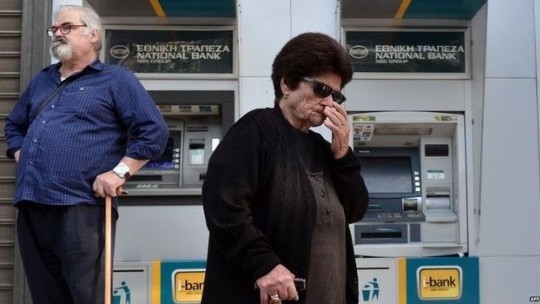Beware the Greek option
9:35 am, Mon June 29, 2015
By Dashan Hendricks
I have written at length before, that the sentiment among multilateral financiers when Jamaica tried to secure a new deal in 2012 was for the economy to crash and be rebuilt from scratch. Perhaps, what's happening in Greece shows how lucky Jamaica has been. The gains made so far must be protected.
In case you have not been following the discussions, Greece is five years into a bailout funded by its European partners and the International Monetary Fund (IMF). But the issue is that, even with the bailout, Greece failed to make the necessary reforms to retrieve its economy from the brink of collapse. The result is that Greece has wasted five years of bailout without making any serious attempts to fix the structural problems that had weighed down its economy. It may be argued that Greece is even going backwards.
Just this weekend, the Greek Government, under pressure from its creditors, essentially said it will default on its loans. It's a default which means its creditors will not easily lend it money again, even though the IMF said if Greece returns to the table and is willing to carry out reforms, it will help. What is certain is that "help" will be tough for Greece. The Greek Prime Minister has rejected what is being asked of his country so far. Things will get tougher. And already they are.
Greece, in a debt crisis, has shut its banks for a week and imposed capital controls, essentially telling people how much of their own money they can get at a time. Sending money outside of Greece has been prohibited, except for vital pre-approved commercial transactions.
Such a move will hit the Greek economy hard. The nation, which has a huge tourism sector, now cannot comfortably buy food to feed its guests. Manufacturing that depends on imported raw materials will also be hit. Transactions that require the input of banks will not take place for a week.
Jamaica faces a similar or worse prospect if, like Greece, the authorities in any way do not continue to honour the terms of the current Extended Fund Facility, which has less than two years to run. What is happening in Greece is a warning to Jamaica, of what could happen here as well.
And that is why the Prime Minister has urged Jamaican workers not to derail the progress made so far. That urging came just days after the IMF told the authorities in its latest report on the country, that the public sector wage bill remains large, taking away money that could be put into capital expenditure; that the reduction in the public sector wage bill is taking longer than envisioned; that the civil service should transition to a smaller size to eliminate some of the challenges the programme is facing. Continued remarks that the currency needs to be weakened further makes uncomfortable reading for Jamaicans; all that in the name of reform.
The message is that we must not take what has been achieved so far for granted. True, things have been tough, the sacrifices unbearable for many. It is hard to tell what the alternative would have been if Jamaica had stood up to creditors the way Greece had. That's an uncertainty no one is willing to countenance. What we do know is what we have done so far. What we don't want is to create a Greek style economic collapse in Jamaica. The hope is that, after all this sacrifice, the country will emerge from 40 years of anaemic growth. Remember that even if the programme targets debt reduction at first, the ultimate aim is to get the economy prepped for reasonable growth above two-to-three per cent per annum.
Dashan Hendricks is RJR's Group Business Editor

9:32 am, Sat April 20, 2024

8:34 pm, Sat April 20, 2024
.jpg)
11:29 am, Fri April 19, 2024








 All feeds
All feeds







